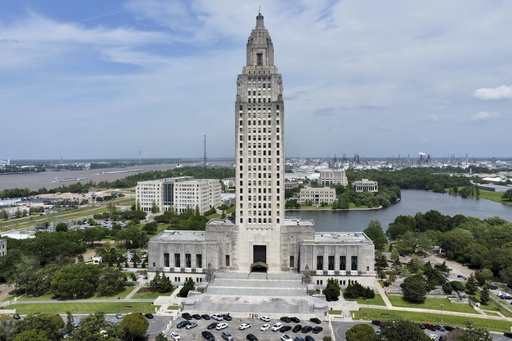In Louisiana, new legislation has come into effect, with one notable law standing out: the authorization for judges to potentially enforce surgical castration as a punishment for certain sex crimes against children. While chemical castration was already an option for judges in Louisiana, the addition of surgical castration is groundbreaking. Proponents of this law, such as Democratic Sen. Regina Barrow, believe it could act as a deterrent for individuals committing such atrocious crimes. However, opponents argue that this form of punishment constitutes cruel and unusual treatment. The law applies only to individuals convicted on or after August 1 and not to the 2,224 people currently imprisoned for such offenses.
Additionally, stricter regulations concerning absentee ballots have been implemented in Louisiana. These restrictions include limits on the assistance provided in the completion of ballots and the witnessing process. Moreover, new laws make it simpler for officials to discard incomplete absentee ballots. While supporters maintain that these measures reinforce election integrity, critics raise concerns that such laws could pose obstacles for voters, particularly the elderly who may require assistance during the voting process.
Under the new administration and legislative landscape, previously vetoed bills targeting transgender youths and the LGBTQ+ community have now been signed into law. One particularly controversial measure restricts school teachers from discussing gender identity and sexual orientation in what critics have labeled the “Don’t Say Gay” policy. Furthermore, extracurricular activities related to sexual orientation or gender identity are banned in schools.
Another law establishes a 25-foot ‘buffer zone’ around police officers, penalizing individuals who approach within this limit under certain circumstances. Critics, including the ACLU of Louisiana, fear that this law could restrict the ability to record police interactions, potentially infringing on First Amendment rights. Advocates contend that the law is necessary to safeguard law enforcement personnel during the execution of their duties successfully.
Moreover, a new law allows concealed carry of firearms without a permit for individuals aged 18 and older statewide. However, in New Orleans, this legislation was put into effect only recently as an existing city ordinance with stricter regulations had expired. Supporters stress that this law empowers citizens in exercising their Second Amendment right, while critics express concerns about the potential consequences of increased gun violence due to the lack of mandatory firearm training for permitless carriers. Louisiana is now the 28th state to enact such legislation, aligning with numerous other Republican-led states in expanding gun rights.


